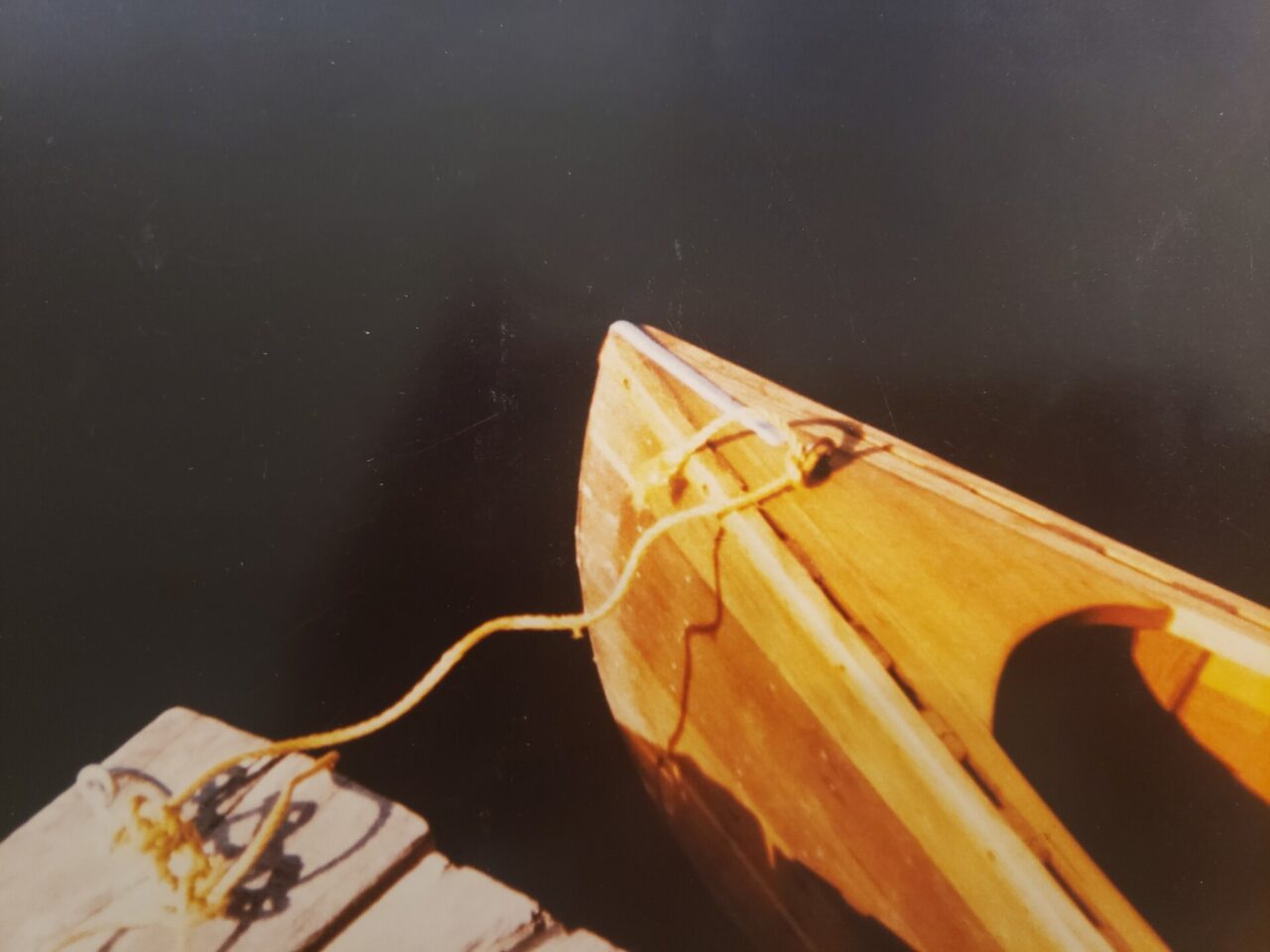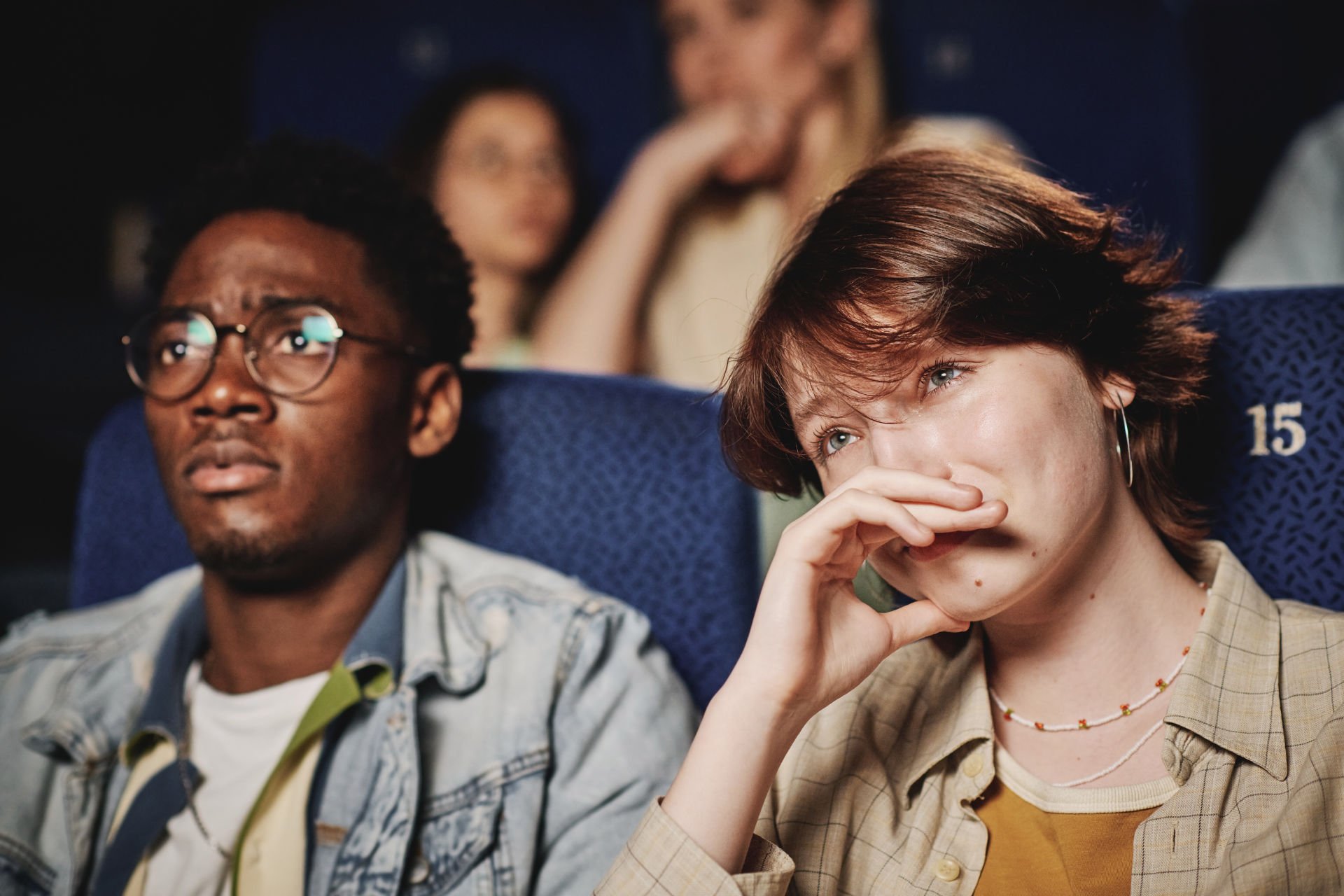Death in the Movies
I cry watching poignant movies. I can be a blubbery mess, and some movies touch the theme of death in ways that we won’t forget. If a movie has particularly touched us, we may recall the images and sounds of a scene even decades after watching the movie.
Why would we willingly agree to have a sob-fest, feel devastatingly sad for fictional characters and cry ourselves to sleep over a film?
“Researchers believe that sad movies offer viewers a chance to confront deep, real emotions in a safe and protected environment. By experiencing “reality” from a safe distance on the screen, our emotional responses feel authentic and genuine.
This emotional release, known as catharsis, allows us to purge buried feelings and increase our awareness.”
nofilmschool.com
Believe it or not, research suggests that there is a correlation between sad movies and our happiness. The idea is that watching heart-wrenching movies makes us appreciate more what we have in our lives. Watching sad movies can also validate our feelings of grief, depression, and angst.
For me, Schindler’s List undoubtedly tops the list of the saddest movies of all time (so much so that I have only been ever to watch it once, and the one time I did watch it, my ex-husband and I got back to our car in the cinema parking lot and bawled for 30 minutes). NOT the date we expected!

In a previous blog, I highlighted some books that I thought were wonderful supports in the death space. In this article, I want to focus on some movies that are centred around the theme of dying in death in a way that – once we have cleaned up the running mascara or tears in the beard, are rather comforting and affirming – showing us the power of community in sad times. I’ve deliberately chosen NOT to focus on mass casualty movies and documentaries or movies of holocausts or genocides. My choices, below, focus on the intimate loss that is experienced in families, and in the case of the movie “Departures”, what role others play in our lives when we experience a loss, and how it might affect them.
Get Your Tissues Ready
Steel Magnolias – starring one of my favourite actors, the late, great Olympia Dukakis – not to mention the co-stars Shirley Maclain, Sally Field, Dolly Parton, Daryl Hannah and Julia Roberts – this movie takes place in the Deep South of the USA and focuses on the friendship between six women, and how they cope with the death of one of their own. I can’t count how many times I have watched this movie! This story reminds me that there is so much support and strength to be found in friendships between women. The fact that a deep loss has touched a very “normal” family reminds us that none of us can escape death – that we are all equal when it comes to loss and mourning.

On Golden Pond – This 1981 (OH MY GOD I’M OLD!) film starring Henry Fonda, Katherine Hepburn and Jane Fonda highlights multi-generational families and stepfamilies, growing old, dementia and conflict within families. It covers all the bases in terms of real-life issues. Henry Fonda’s character does not approach end-of-life with any grace at all. He’s a cantankerous old man. And even so, we can empathize with his growing dementia and the fear he has when he is lost. Katherine Hepburn’s wonderful acting in this film helps us understand the spouse-caretaker role. As we watch this film, we can’t help but imagine our aging parents in similar circumstances, wondering what we would do and how we would handle it. We think of family conflict and what needs mending in our own lives. While not confronting death itself, On Golden Pond is most definitely an end-of-life movie.
Departures (you can buy or rent it on Youtube) is a Japanese film starring Masahiro Motoki that I really enjoyed: a young man with a failing career as a cellist returns to his hometown and, out of desperation, takes on the job of a mortician assistant. By doing this, he repulses his girlfriend and becomes a kind of “untouchable” in his community – which really made me think about our own culture and whether or not we shun people who work in the death care realm. Although the film is predictable (problem, things get worse, eventually things get better and resolve), I loved this film for the window into the respect and ceremony of Japanese culture and for the scenes where families inevitably find out something they didn’t know about their loved one, after death. It’s just a really beautiful piece of film and well worth watching. Not to mention it’s won a ton of awards.
The Fault in Our Stars (I believe this is available on Disney+) is a 2014 movie about two young teens with cancer who meet and fall in love. Without giving anything away, it is a great movie. Make sure you have tissues on hand.
What Dreams May Come (starring the late, great Robin Williams, and Cuba Gooding Jr), is about a man who dies, and then in the afterworld discovers that his wife has taken her own life in grief. Chris Nielson (the character played by Robin Williams) then travels through heaven hoping to reunite with her. This movie is poignant, sad and sweet all at the same time, and will make you believe in everlasting love.

Marley and Me (2008) reminds us that our fur babies are indeed our family members. This movie follows the life of Marley from the time he is a puppy, to the time of his death and is a beautiful story of a family nurturing their beloved four-footed loved one to the end. Equal parts humour and tears. Prepare yourself.
Serving Life
There is one documentary that is VERY hard to find and to watch, called “Serving Life”. It is about a hospice that was set up in a penitentiary in the United States. I love this documentary for highlighting the initiative of a compassionate warden and also for illustrating to us, in a very moving way, that none of us are getting out of here alive and that perhaps – at the end – we are all on equal footing in our desire for compassionate care at the end-of-life. I highly recommend watching this if you can find it.
These are just a handful of movies that approach dying and death in a way that makes you pause, wipe your tears, and, at the same time, feel love and appreciation for life itself. What are some of the movies that have touched you? Use the “Contact Me” page on the website to tell me about some of your favourite films, and I will add them as footnotes to this blog.
Download My Free End-of-Life Glossary
This comprehensive guide will help you navigate the often unfamiliar terminology associated with end-of-life discussions. You’ll also receive valuable insights about once a month. No spam ever; unsubscribe anytime. Download your free glossary today.
